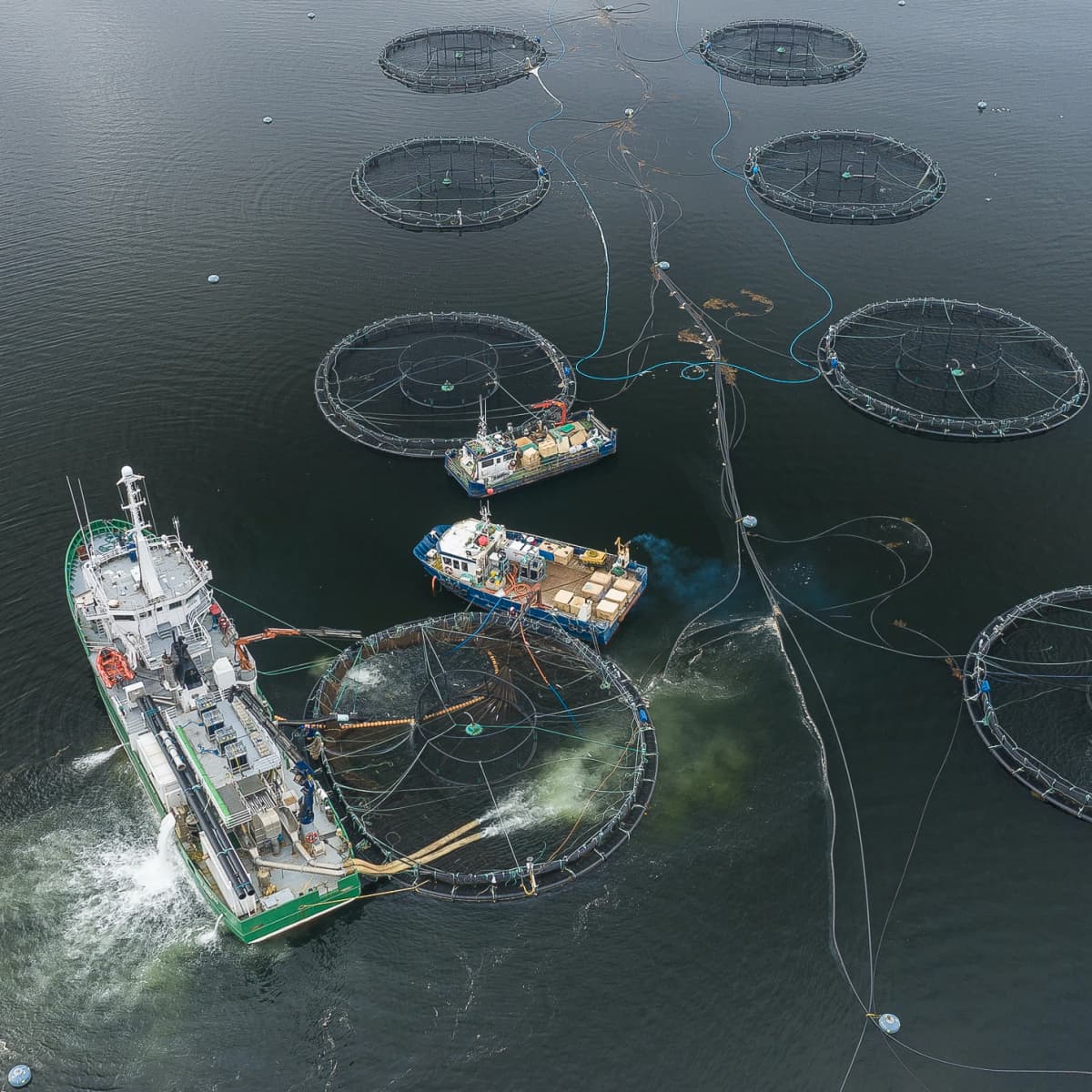
The salmon you eat, sell, produce...
kills, starves, contaminates.
Social Justice
Diverts food from West African communities.
Climate
Generates a carbon footprint equivalent to that of 10,000 inhabitants.
Health
Raises concerns about human health due to diseases requiring medication and microplastics.
Biodiversity
Degrades marine biodiversity, including escapees, pollution, parasites, and overexploitation of wild stocks.
Animal welfare
Stress, diseases, excess mortality as consequences of intensive breeding.
Biodiversity
Intensive salmon farming has significant impacts on marine biodiversity, including escapees, water pollution from waste discharge, parasites affecting wild populations, and increased pressure on wild fish stocks due to the demand for fishmeal, thereby contributing to overexploitation and declining biodiversity.

Health
The high concentration of fish in aquaculture farms promotes the spread of diseases, necessitating the use of pathogens or medications, which can have consequences for human health. Additionally, the increasing presence of microplastics in salmon raises concerns for human health.

Climate
Intensive salmon farming generates greenhouse gas emissions, primarily carbon dioxide (CO2) from energy used in facilities, feed production, and transportation, as well as methane resulting from the decomposition of organic waste.

Social Justice
Every year, 123,000 to 144,000 tonnes of wild fish are harvested from West African waters to feed Norway's farmed salmon, putting the food security of local communities at risk.

Animal welfare
The very high density of salmon in cages leads to illness and stress. Sea lice eat the flesh of disfigured fish. Mortality rates within cages are abnormally high.

And all this with the impunity of an exponentially growing industry.
Salmon production, dominated by a handful of multinationals, has experienced hyper-growth on a global scale for several decades.
Loading data..
Be the change.
Don't want to be part of this ecological and social disaster? Good news, solutions exist!
Governments, businesses, and citizens can work together to be part of these solutions.
- Governments an regulate to abandon intensive farming of carnivorous fish - such as salmon and tuna - and to stop overfishing worldwide.
- Businesses must commit to increasing plant-based options and developing low-trophic level aquaculture, such as algae and shellfish.
- Individually, let's make the simple choice to exclude industrial salmon from our plates, in order to collectively accelerate the revolution towards a more plant-based food system that meets health, sustainability, and social justice imperatives.

To reverse the trend and stop the disaster, urgent action is needed. We have levers for action!
I act